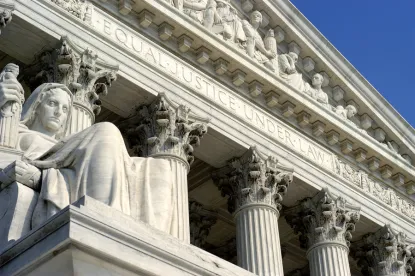No case in recent months has created more news than the Mississippi abortion case, Dobbs v. Jackson Women’s Health Organization, as to which the Supreme Court recently heard oral argument.
Commentators on all sides of the inherently controversial issue of abortion have, often with great self-importance, opined how, at least in their views, each of the Justices will decide the case and how that decision will affect the Court’s two major opinions in the area: Roe v. Wade and Planned Parenthood of Southeastern Pa. v. Casey. We likely will have to wait months to know the outcome of Dobbs, in which the state argues that the trimester-based regime of Roe must be overruled.
I would suggest that, whatever the specific outcome of the case will be, it is more likely to turn on how, if at all, Casey might be affected than it is on reversing Roe. But that is for another time.
Today, however, the Court decided the case of Whole Woman’s Health v. Jackson, itself a matter of great controversy.
Jackson derives from the Court’s unusual grant of certiorari before judgment to decide whether several abortion providers can pursue pre-enforcement challenges to the Texas abortion statute that prohibits physicians from knowingly performing abortions if they “detected a fetal heartbeat for the unborn child,” unless there were a supervening medical emergency.
As any consumer of news likely knows, besides constructively banning abortions as early as six weeks from conception, the Texas law had the unusual feature of not allowing state officials to enforce it, but instead empowering private civil actions to do so. (A less-known fact is that the law tracks Casey by permitting defendants in such suits to defeat them by showing that holding them liable would place an “undue burden” on women seeking abortions.)
The Court dismissed cert. as improvidently granted as to the Biden administration’s petition challenging the Texas law. However, while differing significantly in their views related to the merits (essentially a conservative-liberal split with the Chief Justice somewhat in the middle), the Court dismissed various defendants against whom relief could not be obtained for various reasons, but was unanimous in holding that the petitioners may bring a pre-enforcement challenge in federal court as one means, among others, to test the Texas statute’s compliance with the federal Constitution. Any individual sued under the Texas law may raise state and federal constitutional arguments in his or her defense without limitation. Whatever a state statute may or may not say about a defense, applicable federal constitutional defenses always stand available when properly asserted, citing U.S. Const., Art. VI.
What is the net of all of this? Given the division of views revealed in the case, pessimists as to the continued survival of Roe and Casey will find little reason to change their predictions. We likely won’t know about that until well into next year.
For now, we have a useful precedent for those challenging certain types of laws as a pre-enforcement matter, an unusual remedy that might echo in other future constitutional cases. Justice Kavanaugh, in particular, noted at the oral argument of the Jackson case that the enforcement mechanism of the Texas statute was an apparent dodge to get around typical enforcement methods and their review.
Thus, the case at least stands as a realistic note that the Court will reject artifice designed to preclude orderly review.




 />i
/>i
